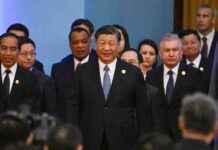Transforming LGBTQ Activism: Crackdown Impact in China
In the midst of the COVID-19 pandemic and escalating restrictions on civil society, the LGBTQ movement in China was experiencing a period of growth and visibility in mid-2020. Despite the cancellation of pride celebrations worldwide, Shanghai Pride managed to hold a nine-day event that included a “Pride Run” and a “Pride Job Fair.” Additionally, a transgender woman’s successful lawsuit against her employer for discrimination garnered widespread attention on Weibo, reaching an audience of 380 million views. State media even featured interviews with a lesbian mother fighting for custody of her children with the support of LGBTQ rights groups in the lead-up to the “Two Sessions,” China’s main legislative and consultative assemblies.
The progress made by LGBTQ advocates in shifting social attitudes was evident in the decreasing disapproval rates among Guangzhou youth, dropping by almost half from 2010 to 2018. While overall public disapproval remained high, there was a sense of forward momentum in changing perceptions towards LGBTQ individuals. A UNDP report authored by a professor from Peking University noted that social attitudes in China towards LGBTQ people were in transition and could undergo rapid and profound change.
However, in 2020, a significant shift occurred as Shanghai Pride announced the end of its 12-year run following increased harassment and threats from authorities. This closure marked a turning point for the LGBTQ community in China, signaling a more hostile environment for activism. State pressure intensified, with security agents issuing more frequent and aggressive summons to LGBTQ groups, leading to the cancellation of activities and the shutdown of philanthropic foundations supporting LGBTQ projects. Media coverage of LGBTQ issues dwindled, and LGBTQ-related content disappeared from social media platforms. Numerous LGBTQ organizations were forced to close, with police even linking the closure of LGBT Rights Advocacy China to the release of its detained founder in November 2021.
The reasons behind the crackdown on LGBTQ activism remain speculative, with theories ranging from government unease at the movement’s mobilization to a broader crackdown on civil society. The official view that LGBTQ identities are a Western social contagion that must be controlled was also evident in bans on various forms of LGBTQ expression in entertainment and media. As a result of increased censorship and suppression, the LGBTQ movement’s ability to mobilize collective action and advocate for change has been severely hampered.
The decline in media coverage of LGBTQ issues has been stark, with a notable decrease in reporting on significant cases and developments within the community. Atomization within the LGBTQ movement has made it challenging to respond effectively to incidents of discrimination or abuse, leading to a lack of community support for LGBTQ individuals. Anti-LGBTQ voices, often endorsed by nationalist influences, have gained prominence, further fueling stigma and eroding public support for LGBTQ rights.
Despite these challenges, LGBTQ advocates remain optimistic about the movement’s resilience and potential for progress. A survey conducted by the University of California, Los Angeles’ Williams Institute revealed that a significant majority of respondents supported LGBTQ acceptance in society. While the crackdown has weakened advocacy efforts, there are still opportunities for visibility and support through personal connections and grassroots initiatives.
LGBTQ advocates have adapted to the changing landscape by finding alternative ways to promote equality and challenge discrimination. By engaging in broader coalitions and pursuing goals that benefit the LGBTQ community indirectly, activists have built alliances and fostered incremental change. While larger organizations may face increased scrutiny, smaller informal groups and LGBTQ-friendly spaces continue to provide support and opportunities for community engagement.
The future of LGBTQ activism in China remains uncertain, with the potential for further restrictions on advocacy efforts. However, advocates remain resilient and committed to pursuing change despite the challenges they face. As one advocate noted, “In China, things change all the time,” highlighting the dynamic nature of social movements and the potential for unexpected progress in the face of adversity.

















